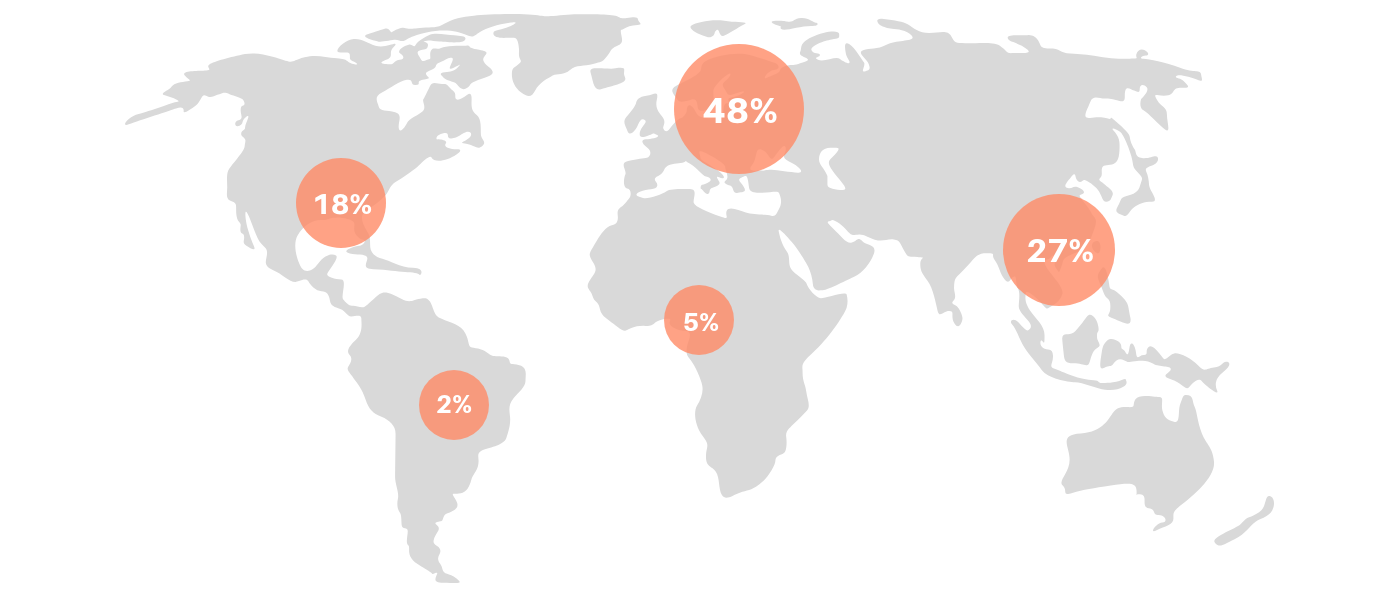The influx of prospective university students has become increasingly international and diverse in recent years. In many cases, it is not immediately clear if these students have the required level of mathematics for succeeding in their chosen study program. If admissions offices are unable to recognise diplomas or certificates provided by students, they either deny the application, or redirect applicants to offline placement tests and/or summer courses. Offline tests and preparatory courses are either organised by universities themselves or outsourced to third parties. However, for universities, arranging their own test takes a lot of time and effort. For students, taking offline placement tests often means having to travel to faraway (overseas) campuses, which is both a time-consuming process and an unnecessary financial burden.
We would now like to give more details regarding the test and share our insights on the summer pilot. The placement was organized in partnership with three Dutch universities (Vrije Universiteit Amsterdam, Maastricht University, and Amsterdam University College) and students could take it any time between from April to August 2018.
OMPT, short for Online Mathematics Placement Test is designed by Sowiso as an alternative to offline tests. It offers online proctored mathematics tests and accompanying digital preparation materials. When students are redirected to OMPT, they are able to choose their own test location, date and time. All that is required is a computer or laptop with a webcam, and an internet connection.
OMPT currently offers two mathematics tests: OMPT-A and OMPT-B. OMPT-A includes topics from basic algebra and applied analysis, and is therefore a good fit for social sciences programs such as economics; OMPT-B consists of topics on algebra, trigonometry and analysis, and can be used by any STEM or econometrics program. These certified tests, compiled with the help from experts in higher education, effectively assess students’ math competency and assist universities in evaluating whether students are eligible for enrolment. OMPT also offers applicants fitting practice courses to prepare for these tests.
“Students are monitored by their webcam during the entire exam.”
To make sure there’s no cheating, tests are remotely proctored. Students will be guided by a real person during the set-up. They are asked to show their ID and room before the test starts, and are monitored by their webcam during the entire exam. Screen activities are also recorded. These recordings are checked for fraud both automatically through a sophisticated algorithm, and manually within 24 hours.
After taking the test, students will receive a digital certificate which they can forward to the admissions office, who can verify the results through an online portal. This allows universities to check whether or not the student has tampered with the digital certificate. It’s also possible for OMPT to send certificates directly to the admissions office.
At students’ convenience
OMPT tests are not given on fixed locations, dates, and times. Students schedule the test at their convenience, and can reschedule their test up to 3 days before the test date. This flexibility resulted in a high conversion rate of interested students. During the summer pilot, 72% of students who left their contact information ended up scheduling a test. Reasons for drop-out included students choosing offline options or being admitted at another university.
Separating the wheat from the chaff
OMPT provides a reliable indication of prospective students’ math competencies. 54% of students scored higher than 65% on the test, which was the highest cut-off point any of the participating programs adopted. 35% of students did not score a passing grade (i.e. lowest cut-off point of any participating program), which during the pilot entailed a score lower than 55%.
Effective practice material
Digital preparation courses were in high demand. 83% of students who took the test had access to OMPT practice materials. The average score on the first attempt of students who practiced little to not at all was 40%, whereas the average score of those who finished the practice course was 76%. In other words, those who finish the practice course before their first attempt will, on average, score a passing grade.
Retaking OMPT
During the pilot, students were able to retake the test as many times as they wished, and there was a high number of resits. Re-taking a resit yielded in a higher grade in all but one of the cases. In the end, 68% of resit students scored above 55% after multiple attempts. This indicates that it was possible for students to spend time during the summer studying for the test and still be admitted.
Online proctoring and fraud-proof
There are various security measures to safeguard every aspect of the OMPT test. Over the course of the summer pilot, there were no cases of fraud during the test discovered. Only small technical issues were found, mostly with the unstable WiFi connections on students’ mobile phone.
We did find 2 fraudulent certificates in which students photoshopped the grade on the certificate. Going forward, universities will be able to digitally check the grade and match it to the grade on the certificate.
Accessible worldwide
Students were able to take the test from all over the world without test-breaking technical issues. Small issues found included the so-called “Great Firewall of China” and poorly performing internet connections, but were solved before the test took place.
Students from across 37 countries took an OMPT test during the summer of 2018.They are mainly from Europe (48%), Asia (27%) and North America (18%). There was a small number of students from Africa (5%) and South America (2%).

We will continue to develop OMPT and we are sure that OMPT can bring many advantages to both students and universities.
If you are interested in getting to know OMPT better, send us a message at info@omptest.org!